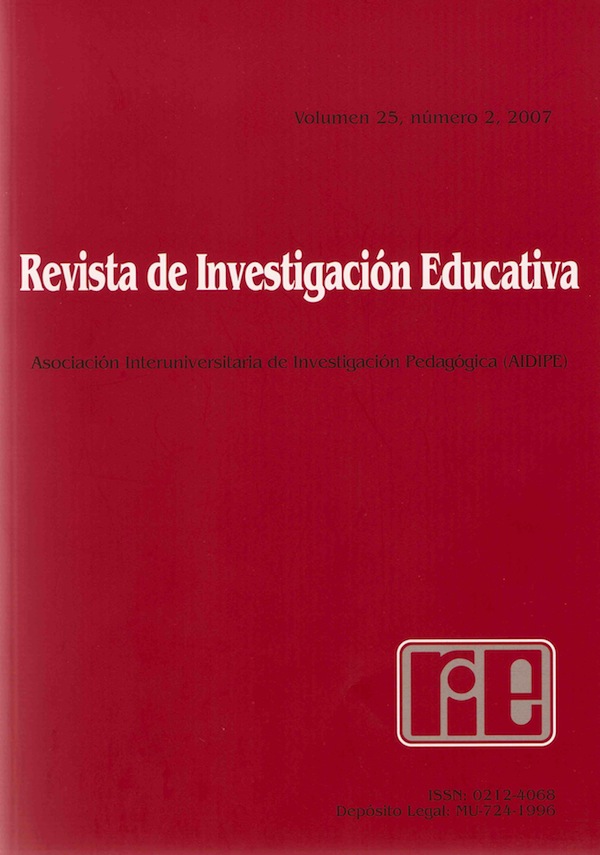Validación de una escala observacional para el análisis de los documentos de planificación
Abstract
In this word we will present a tool of institutional culture that has been used by this group in recent investigations and it is formed by six dimension: autonomy, innovation, asssesmet, relationship, regulate and structure. Our project to deal with the neccesity if knowledge about the education wich is provided to different students in secoundary education. Our project arise as a result of sth the group different of research the university of Andalucia (Granada, Almería, Jaén, Huelva y Sevilla). Our main proposal will be to identify teaching strategies which are used by teachers for adoptain the common curriculum to diversity of their students. Because we understand that is a main baris to improve them and, our analys units design shapes form of language, comunication, interaction, society and culture. We are analizing inductive categories form written text that give us information about the real autonomy of educational school, defined by the responsability and independece of the work done. The organization of the educational school can be explained in this sense as a basic culture code for interpretation of the real education life in which we can find teachers, parents and students.Downloads
-
Abstract378
-
PDF (Español (España))412
The articles and scientific documents published in RIE abide the following conditions:
1. The Servicio de Publicaciones de la Universidad de Murcia (the publisher) has the property rights (copyright) of all the documents published and allows the reuse under the user’s license indicated in point 2.
2. All documents are published in the digital edition of RIE under a Creative Commons Reconocimiento-NoComercial-SinObraDerivada 4.0 Internacional. (legal document) license. These documents can be copied, used, distributed, communicated and explained publicly if: i) the author(s) and its original source of publishing (magazine, publisher and URL of the document) are cited; ii) it is not used for commercial purpose; iii) the existence and the specifications about this license are mentioned.
3. Auto-archive’s conditions. The authors are allowed and encouraged to digitally distribute the pre-print versions (a version before evaluation) and/or post-print (a version that it is already evaluated and accepted to its publication). This promotes circulation and distribution earlier and can increase the citations and significance within the academic community.










